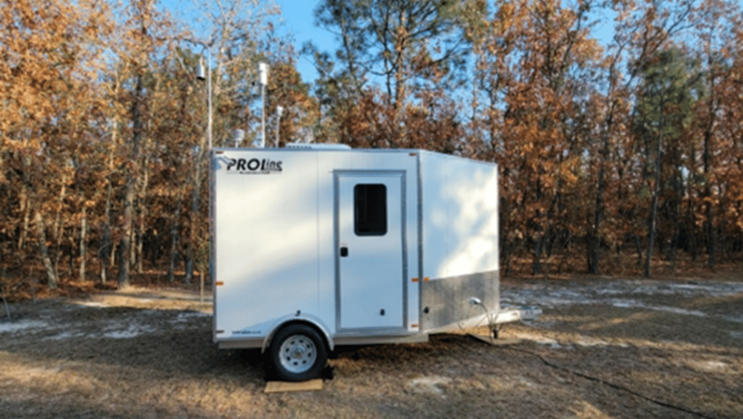
Photo Credit: https://www.bredl.org/bbwp_resources/bredl-beast/
By Juliet Porter.
In 2025, about half of the U.S. population, or 156.1 million Americans, were proven to reside in communities with unhealthy levels of air pollution, marking a significant increase from 2024 (EcoWatch). This warning came from the American Lung Association’s State of the Air report, emphasizing the growing urgency of addressing air quality in American communities (ALA). Although air pollution is often invisible and therefore often overlooked, its effects are very real, impacting physical health, environmental stability, and community well-being. In this blog, we’ll explore the disproportionate burden of air pollution, the power of community-led monitoring, and the importance of supporting grassroots environmental justice.
As you may imagine, air pollution doesn’t impact everyone equally. Through an environmental justice lens, it becomes clear that low-income communities and communities of color bear the brunt of pollution due to their proximity to industrial sites and a lack of adequate regulatory enforcement (ShunWaste). These communities are often overlooked, yet they face the highest health risks. Long-term exposure to polluted air is linked to serious conditions like lung cancer, asthma, cardiovascular disease, and even early death. Even short-term exposure can trigger harmful effects, including hospital visits due to respiratory flare-ups and worsening allergies.
One of the most powerful tools in the fight for environmental justice is community-led air quality monitoring. When residents lead monitoring efforts, they take control of the narrative, gathering data that empowers them to advocate for meaningful change. Alarmingly, over 50 million Americans live in areas without air quality monitoring infrastructure (EcoWatch), making grassroots efforts even more critical.
A leading example of community monitoring is the Blue Ridge Environmental Defense League (BREDL), which recently launched the B.E.A.S.T.—the BREDL Environmental Air Sampling Trailer. This mobile unit is equipped with advanced air monitoring tools and travels across the Southeast to collect and share real-time pollution data. By putting scientific tools in the hands of the people, BREDL, funded by a grant from the EPA, is helping communities document local air quality and use that information to hold polluters accountable.
Despite the promise of community-led monitoring, there are significant barriers. In states like Louisiana, recent legislation, such as the Community Air Monitoring Reliability Act, has made it increasingly difficult for grassroots groups to monitor air quality, threatening them with fines and legal complications (AP News). At the federal level, proposed rollbacks to greenhouse gas regulations by the EPA could further erode national protections (Reuters). These developments are especially troubling in light of ongoing budget cuts to the EPA, which jeopardize not only enforcement but also the funding and support that make projects like BREDL’s B.E.A.S.T possible. Without robust federal support and environmental oversight, innovative community-led initiatives like the B.E.A.S.T., which empower residents with real-time data to hold polluters accountable, could become obsolete. This convergence of weakened policy, limited resources, and increasing pollution events paints a troubling picture for the future of environmental justice.
The Center for Health, Environment & Justice (CHEJ) plays a vital role in advocating for and empowering community efforts. By providing resources, training, and organizing support, CHEJ helps local groups respond to pollution threats and resistance to anti-environmental policies. Moving forward, CHEJ will continue to amplify the voices of frontline communities and the need for community-led action in addressing the harmful effects of breathing polluted air.
To ensure that every person in this country can breathe clean air, we must uplift community-led air quality monitoring and challenge policies that silence grassroots action. Environmental non-profits like CHEJ are uniquely positioned to bridge science, policy, and community engagement, paving the way for healthier, more just communities. Together, we can envision a future where clean air is not a privilege, but a guaranteed right.
